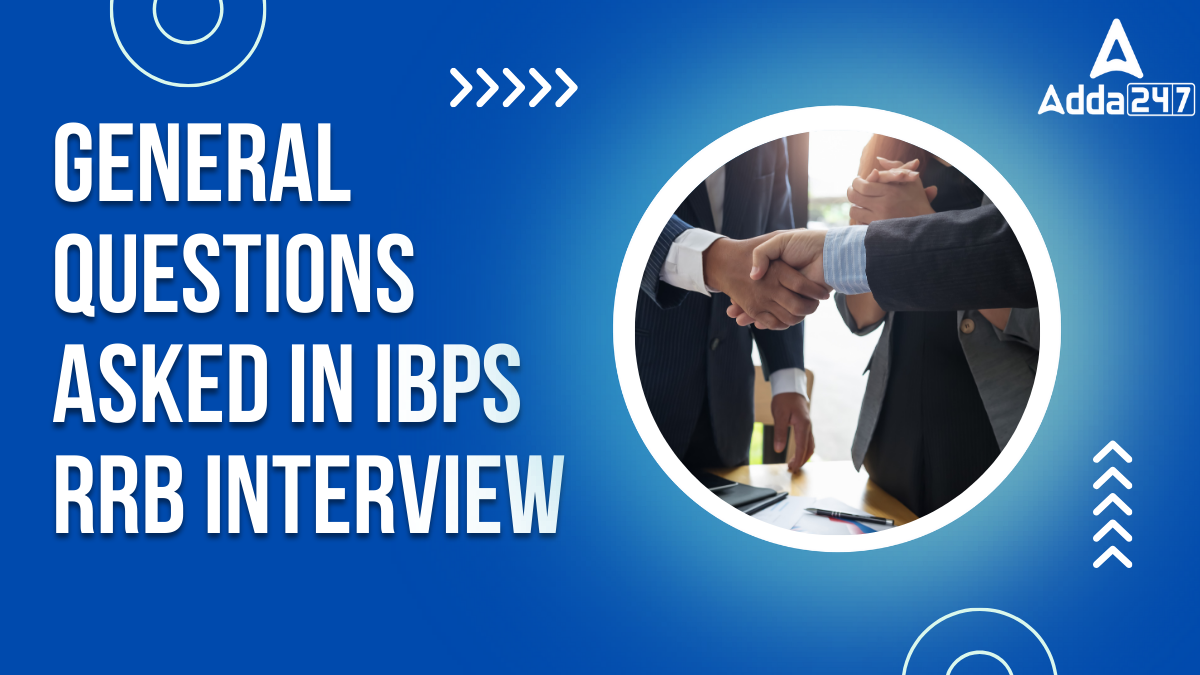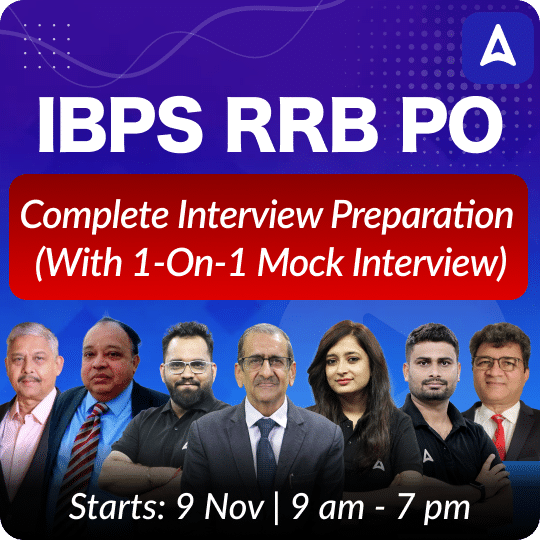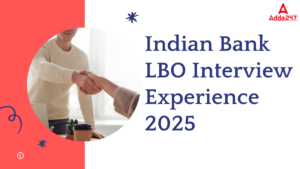Table of Contents
The IBPS RRB Interview 2024 is a vital phase of the selection process for candidates aiming to secure officer positions in Regional Rural Banks. Scheduled between 11 to 28 November 2024, this round evaluates not only the candidates’ knowledge and technical skills but also their personality, communication abilities and suitability for the role. Preparing for this stage requires an understanding of the type of questions that could be asked.
General Questions Asked in IBPS RRB Interview
The IBPS RRB interview is designed to assess candidates’ overall suitability for officer roles in regional banks. The IBPS RRB Interview 2024 is an opportunity for candidates to demonstrate their suitability for officer positions through a mix of knowledge, confidence and personality. Preparing for a variety of question types and refining interview techniques can greatly enhance the chances of success.
By preparing for these general questions and sharpening their interview skills, candidates can approach the interview with confidence and increase their chances of selection.
1. Personal and Background Questions
These questions are designed to help the panel understand a candidate’s background, personality and motivations. Candidates should be ready to answer:
- Tell us about yourself.
- Why do you want to join the banking sector?
- What do you know about Regional Rural Banks (RRBs)?
- Why do you wish to work with an RRB instead of a nationalized bank?
- What are your strengths and weaknesses?
- Describe a challenge you faced and how you overcame it.
Preparation Tip: Be genuine while answering these questions. Prepare a concise and impactful introduction, highlight relevant experiences, and demonstrate how your background aligns with the role.
2. Situational and Behavioral Questions
These questions are meant to assess how a candidate would respond in specific work-related situations and their ability to handle pressure. Examples include:
- How would you deal with a difficult customer or a complaint?
- What would you do if you found discrepancies in the bank records?
- If your branch manager gives you a task that you find unethical, how would you respond?
- Describe a situation where you had to work as part of a team to achieve a goal.
- What do you think are the key qualities needed for an Officer Scale-II role in an RRB?
Preparation Tip: Use the STAR method (Situation, Task, Action, Result) to structure your responses for behavioural questions. This helps in giving clear and organized answers.
3. Technical and Role-Specific Questions
Depending on the role (e.g., Officer Scale I, II, or III), candidates may face questions related to their expertise or past experience. Some examples are:
- Why are you joining the RRB with this specific post when you have a professional degree in [Agriculture/IT/CA]?
- How do you think your professional background will help you in this role?
- What makes you interested in working with a regional rural bank (RRB) as opposed to national-level banks or private financial institutions?
- How do you see your career progressing in RRBs with your professional expertise?
- How do you plan to balance your technical expertise with the customer-centric approach required in an RRB?
Preparation Tip: Brush up on your technical knowledge related to banking, finance, or your specific field of work if applicable.
4. Questions Related to Hobbies and Interests
Interviewers often ask about hobbies to get an idea of a candidate’s personality outside of work. This also serves as a way to relax the candidate and make the interview more conversational.
- What do you do in your free time?
- How do you stay motivated?
- Do you engage in any activities that help develop your skills?
Preparation Tip: Be honest about your hobbies, and be prepared for follow-up questions that may delve deeper into them.
Tips for Success in the IBPS RRB Interview
- Dress Professionally: Make a strong first impression with a formal, well-fitted outfit.
- Be Confident and Clear: Answer questions confidently, maintaining eye contact with the panel.
- Communication Skills: Effective communication is key, so practice speaking clearly and concisely.
- Prepare Documents: Ensure that you have all necessary documents neatly organized and ready for presentation.
- Review Past Experiences: Be prepared to discuss your past work, academic achievements, and any volunteer work relevant to the role.





 GIC Assistant Manager Interview Tips 202...
GIC Assistant Manager Interview Tips 202...
 Interview Preparation Guide for Central ...
Interview Preparation Guide for Central ...
 Indian Bank LBO Interview Experience 202...
Indian Bank LBO Interview Experience 202...





